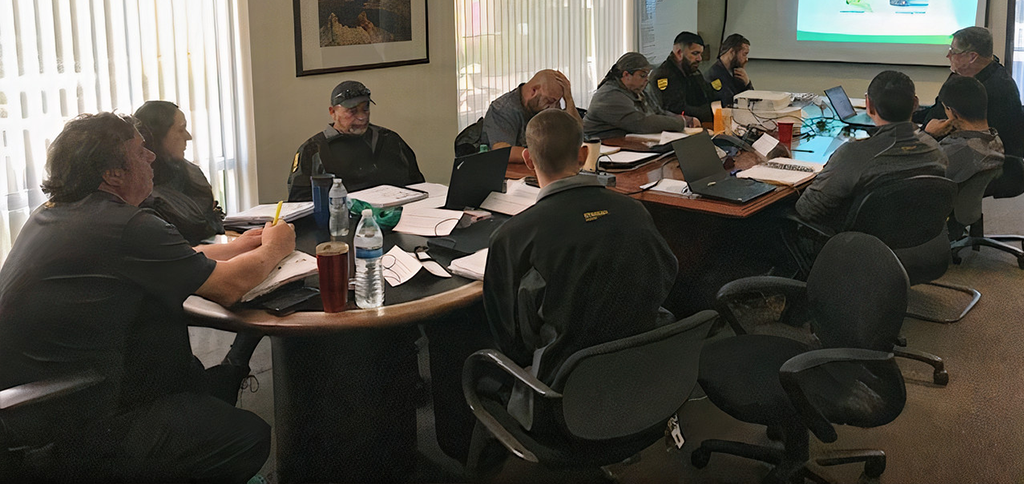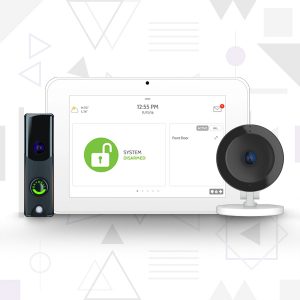
How to Make the Most of Your ESA Certified Alarm Technician Level 1 Training
Embarking on the expedition of career training, development and certification takes commitment and dedication on the part of the student, as well as the instructor. Students must invest their time and effort into learning the material presented before demonstrating their understanding and executing on this knowledge in the field, while instructors have the duties of investing their time and effort to ensure students aren’t simply presented with information — but learn and absorb it effectively — to serve the industry well. It truly is a team effort.
In conjunction with ESA’s robust, relevant Certified Alarm Technician Level 1 curriculum, National Training School instructors bring real-world experience into their classrooms to empower students and prepare them for what is to come in their careers. For example, Don McInnes, physical security and fire alarm systems specialist, ESA Instructor and Education Committee member, has over 48 years of industry experience in all facets of the electronic and physical security industry.
“I can directly relate to real situations, issues, technical concerns and code issues — and my industry experience helps students understand the course learning points,” says McInnes. “The beauty is all ESA National Training School certified instructors have the same passion to help others learn.”

Certified Alarm Technician Level 1 – Online
This passion results in well-prepared, well-trained students who are ready to excel in the electronic security and life safety industry, fostering the positive feedback related to ESA’s CAT Level I certification.
“Every single year, I have had someone tell me that the course has assisted them or their business to be more productive, efficient and/or professional,” remarks LJ Lynes, national certification training manager, Stanley Black & Decker, Inc. and fellow ESA Instructor. “From understanding how to fix a past problem to more efficient installations that reduce false dispatch numbers, students are able to see how it this training helps them and the industry.”

It is important to realize and understand that learning and career development is a journey, not a sprint. Everyone must start somewhere and at some time in their lives.
“In my opinion, it goes back to the basics,” Lynes explains. “Understand the ‘how’ and ‘why’ equipment and electronics work the way they do. If you understand the ‘how’ and ‘why,’ you can design, sell, install and troubleshoot systems more effectively. That knowledge is the best way to be prepared for the real world.”
As students progress through the Certified Alarm Technician Level I certification program, Zackery Morris, director of career programs at ADT Commercial advises to keep a specific career path in mind. In other words, focus on the end goal.

“As you learn about all aspects of the alarm industry during the certification process, pay attention to what sparks your interest most,” Morris says. “‘Do you have a passion for fire/life safety?’ and ‘Do you love the problem-solving nature of maintenance?’”
Specific to the CAT Level I training, the exam is open book which allows students to continue learning as they take their final exam.
“Make sure to highlight your course book properly so you can find the answer reference quickly,” suggests McInnes. “The key — besides knowing the information being presented — is to know where to find the exam question reference during the exam since it’s a timed exam.”
McInnes likens taking the exam to planning a road trip — look at a map and know where things are before leaving
“I highly recommend answering all the easy questions first, then go back and spend time on the more confusing or difficult exam questions,” McInnes recommends. “Remember the certification is not a contest on who can finish first or score highest — you only need to pass in order to certify, so don’t spend 10 minutes trying to answer one question.”
For student success and to adequately prepare to take the final exam, Lynes suggests “going in with an open mind, taking good notes and most importantly … being present and engage with the instructor and with open discussions in class. The past experiences shared in class and collaborative problem-solving can really make a difference to better yourself as a professional,” which is the goal of all ESA training and certifications.
Once students enter the electronic security and life safety industry as an ESA Certified Alarm Technician Level I professional, there are specific principles to embrace.
“Always do the right thing, even when no one is watching,” Dan Cantrell, director technical training and development at ADT and ESA Instructor, says. “Always do your work like someone’s life depends on it — because it may. Knowledge is king in this industry; learn everything you can.”
ESA not only offers this industry-standard level one training. Many CAT Level I professionals later seek advanced certifications, like Certified Alarm Technician Level II or advanced fire certifications, which are approved as NICET alternatives in many states. Additional core training on intrusion systems, video surveillance, and more are available, along with FASA BASA, and various CEUs to further empower electronic security and life safety professionals.














